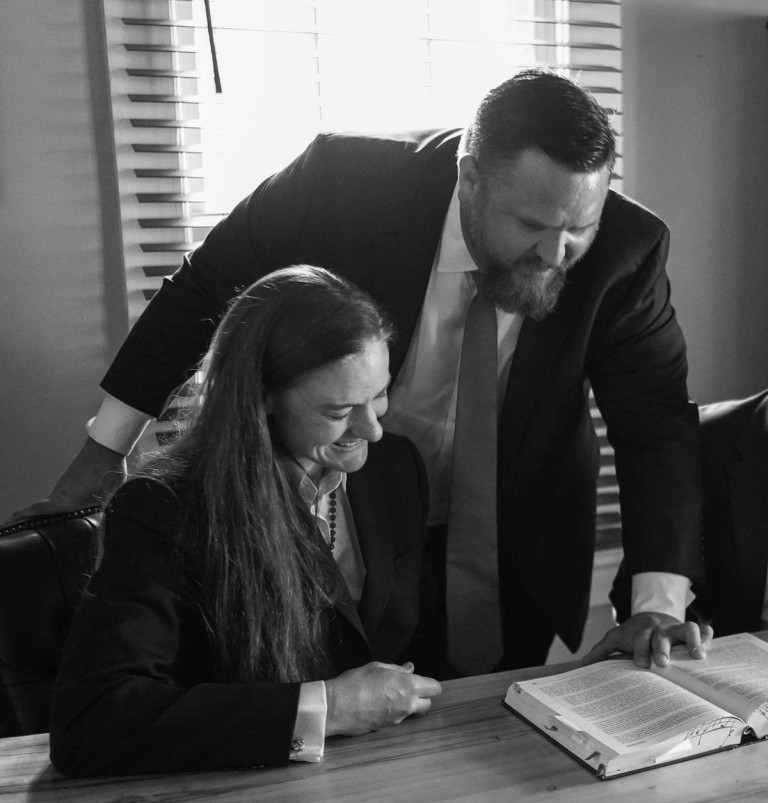Fender Law, a premier Family Law firm based in Beaufort, excels in offering specialized legal
support for divorce proceedings. If you find yourself in a predicament where your spouse is
purposefully prolonging the divorce process, our skilled team at Fender Law is well-equipped to
steer you through the intricacies, ensuring a smooth journey towards a resolution.
What Happens During a Divorce Proceeding in South Carolina?
In South Carolina, as in many other states, the divorce process encompasses several critical steps
and factors. Below is a refined overview of the typical proceedings in a South Carolina divorce:
- Filing the Complaint: The divorce process usually begins with one spouse (the plaintiff)
filing a complaint for divorce with the family court in the county where either spouse
resides. The complaint outlines the grounds for divorce, which can include no-fault
grounds like living separate and apart without cohabitation for a certain period of time, or
fault grounds such as adultery, physical cruelty, habitual drunkenness, or desertion. - Serving the Complaint: After filing, the plaintiff must serve the complaint and summons
to the other spouse (the defendant). This can be done by a process server or through
certified mail with return receipt requested. - Response: The defendant has a certain period of time to respond to the complaint, either
by filing an answer admitting or denying the allegations, or by filing a counterclaim with
their own requests or defenses. - Temporary Orders: In some cases, either spouse may request temporary orders for child
custody, child support, alimony, or use of property during the divorce process. These
orders remain in effect until the final divorce decree is issued. - Discovery: Both parties exchange information and documents relevant to the divorce
through a process known as discovery. This may include financial documents, property
deeds, tax returns, and other evidence. - Settlement Negotiations: Parties may attempt to reach an agreement on issues such as
property division, child custody, visitation, and support through negotiation or mediation. - Trial: If the parties are unable to reach a settlement, the case may proceed to trial. During
the trial, both parties present evidence and arguments, and the judge makes decisions on
contested issues based on the evidence presented and applicable law. - Final Decree: Once all issues are resolved, either through settlement or trial, the court
issues a final decree of divorce. This document officially terminates the marriage and
outlines the terms of the divorce, including custody, support, and property division. - Post-Divorce Matters: After the divorce is finalized, parties may need to address post-
divorce matters such as compliance with court orders, modification of custody or support
orders, or enforcement of the divorce decree.
Reasons Your Spouse May Attempt Delaying Divorce
Understanding the motivations behind postponing a divorce can help in resolving conflicts:
- Mental and Emotional Impact: Often, delays arise from an emotional strategy aimed at
inflicting distress upon the other spouse. - Public Perception Management: Some individuals postpone their divorce to shape how
the public views the situation or to shift blame away from their own actions. - Resistance to Change: The fear of facing new life challenges, such as relocating or
adapting to altered financial realities, can cause individuals to stall the process. - Decision-making Paralysis: The inability to make definitive choices can significantly
extend the duration of the proceedings.
The Consequences of Postponing Divorce
Deliberate postponement of divorce proceedings can lead to several adverse outcomes: - Mental Health Deterioration: Extended divorce processes can intensify existing mental
health conditions. - Economic Difficulties: The financial burden of divorce tends to escalate with time.
- Relationship Tensions: Procrastinating on divorce can worsen relationships with the
former spouse and others. - Obstructed Emotional Recovery: The absence of closure hampers both individuals'
ability to move on. - Additional Legal Actions for Continuing the Divorce
Legal measures, including sanctions or setting a trial date, can motivate progress in the divorce
process.
Fender Law Offers Consultations for Divorce Cases
At Fender Law, we understand the challenges of divorce proceedings and are committed to
providing effective legal representation. If your spouse is intentionally delaying the process, our
team is here to assist you in achieving a resolution. Contact us today to schedule a consultation.




